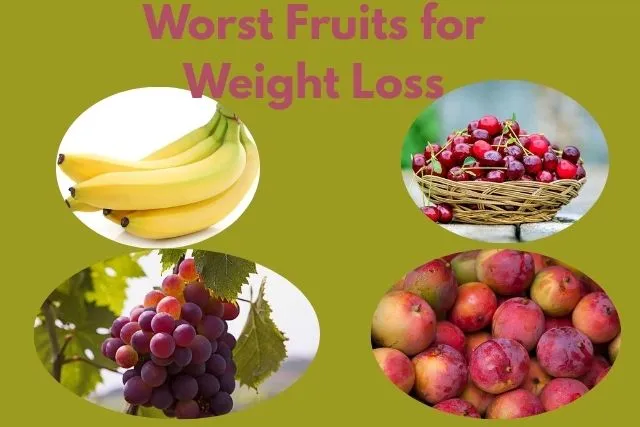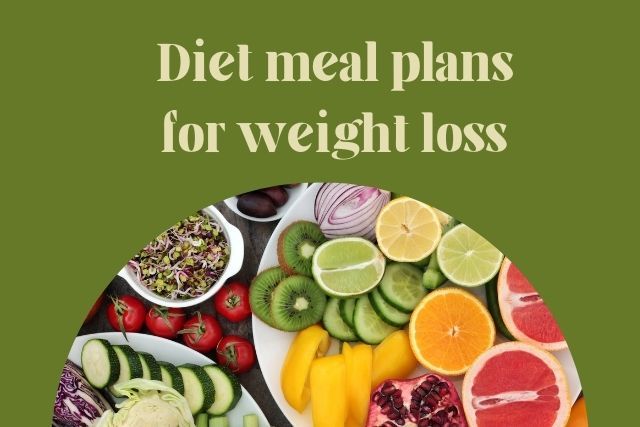10 ways to improve your diet

Elevating your diet is a journey toward enhanced well-being and vitality. By incorporating mindful choices, you can cultivate sustainable habits that positively impact your overall health. In this guide, we’ll explore ten practical and effective ways to improve your diet. From prioritizing whole foods to embracing portion control, these strategies offer a roadmap for achieving a balanced and nourishing relationship with food. Whether you’re aiming for weight management or increased energy levels, these tips provide a holistic approach to transform your dietary habits and promote a healthier lifestyle. 10 ways to improve your diet .
1. 1 of 10 ways to improve your diet prioritize Whole Foods
Prioritizing whole foods is a cornerstone of a healthier diet. Focusing on unprocessed or minimally processed options, such as colorful fruits, whole grains, lean proteins, and healthy fats, ensures a nutrient-rich foundation. Opting for whole foods provides essential vitamins, minerals, and antioxidants while minimizing empty calories. Embrace lean proteins like fish and legumes, choose whole grains over refined options, and incorporate a rainbow of fruits and vegetables. By prioritizing whole foods, you nourish your body with quality nutrition, supporting overall well-being and vitality. Small, mindful choices in food can lead to significant improvements in your diet and health.

2.1 of 10 ways to improve your diet portion Control
Mastering portion control is a powerful strategy for enhancing your diet and overall health. It involves understanding the right amount of food your body needs to maintain a healthy weight. Start by using smaller plates to naturally limit portion sizes and prevent overeating. Listen to your body’s hunger and fullness cues, and savor each bite to increase satisfaction. Mindful portion control helps balance calorie intake, contributing to weight management and improved digestion. By adopting these practices, you empower yourself to make conscious choices, ensuring that every meal is a step toward a healthier and more mindful approach to eating.
3.1 of 10 ways to improve your diet stay Hydrated
Staying hydrated is a cornerstone of a healthy diet and overall well-being. Aim to drink at least eight glasses of water a day, adjusting based on your activity level and climate. Proper hydration supports optimal cognitive function, vibrant skin, and efficient metabolism. By prioritizing adequate water intake, you enhance your body’s ability to function optimally, promoting overall health and vitality. Remember, a well-hydrated body is the foundation for a thriving and balanced lifestyle.
4. Include a Variety of Colors on Your Plate
Incorporating a vibrant array of colors on your plate is a simple yet powerful way to elevate your diet. Different colors in fruits and vegetables signify diverse nutrients and antioxidants essential for your well-being. Aim for a rainbow of hues to ensure a rich spectrum of vitamins and minerals. Red tomatoes, green leafy vegetables, orange carrots, and blueberries offer a palette of health benefits. This diverse selection not only adds visual appeal to your meals but also provides a wide range of phytochemicals that support immune function and reduce the risk of chronic diseases. Embracing the color spectrum on your plate is a delicious and nutritious path to a more balanced and healthful diet.

5. Reduce Added Sugars and Processed Foods
Reducing added sugars and processed foods is a pivotal step towards enhancing your diet and fostering long-term health. Excessive consumption of added sugars has been linked to numerous health issues, including obesity and diabetes. Reading food labels diligently empowers you to identify and limit hidden sugars in your diet. Opt for whole, unprocessed foods over their heavily processed counterparts to minimize empty calories and prioritize nutritional density.
Whole foods not only provide essential nutrients but also contribute to sustained energy levels. By embracing this approach, you not only support weight management but also reduce the risk of chronic diseases, promoting a healthier and more vibrant lifestyle. Make informed choices and opt for whole, nutrient-dense alternatives, paving the way for a nourished and resilient body.
6. 1 of 10 ways to improve your diet Incorporate Lean Proteins
Incorporating lean proteins into your diet is a pivotal strategy for elevating your overall health and well-being. Lean proteins, found in sources such as poultry, fish, tofu, legumes, and low-fat dairy, play a crucial role in muscle development, immune function, and overall cellular repair. Unlike their higher-fat counterparts, lean proteins offer essential amino acids with minimal saturated fats.
These proteins not only aid in maintaining a healthy weight but also support cardiovascular health. Diversify your protein sources to ensure a comprehensive nutrient intake. By making lean proteins a dietary priority, you foster muscle integrity, regulate metabolism, and enhance your body’s ability to repair and thrive. Prioritize lean proteins for a balanced and sustainable dietary approach, promoting long-term vitality and optimal physical performance.
7.1 of 10 ways to improve your diet Choose Healthy Fats
Selecting healthy fats is a fundamental aspect of improving your diet and promoting overall well-being. Opt for sources of healthy fats, such as avocados, nuts, seeds, and olive oil, to support vital bodily functions. These fats contribute to brain health, hormone production, and the absorption of fat-soluble vitamins. Unlike saturated and trans fats found in processed and fried foods, healthy fats offer cardiovascular benefits and aid in weight management. Balancing your fat intake enhances satiety, reducing the likelihood of overeating.
By incorporating these nutrient-dense fats into your diet, you not only add rich flavors to your meals but also provide your body with essential fatty acids crucial for optimal health. Make conscious choices to prioritize healthy fats, paving the way for a more nourished and resilient lifestyle.
8. Plan and Prepare Meals Ahead of Time
Planning and preparing meals ahead of time is a transformative approach to enhance your diet and streamline healthier eating habits. Allocating time each week to plan your meals, create a shopping list, and pre-prepare ingredients fosters a more mindful and nutritious approach to eating. This proactive strategy not only saves time but also helps you make better food choices, reducing the temptation of opting for convenient yet less nutritious options. Having pre-prepared meals readily available encourages portion control and allows you to choose balanced, wholesome ingredients.
This practice not only supports weight management but also contributes to overall well-being by ensuring a consistent intake of nutrient-dense foods. By incorporating meal planning and preparation into your routine, you empower yourself to make healthier choices effortlessly, promoting sustained health and vitality.
9. Practice Mindful Eating
Engaging in mindful eating is a powerful and mindful strategy to enhance your diet and overall well-being. This practice involves being fully present during meals, paying attention to the sensory experience, and listening to your body’s hunger and fullness cues. Slow down, savor each bite, and appreciate the flavors, textures, and aromas of your food. By minimizing distractions and focusing on the act of eating, you cultivate a healthier relationship with food, reducing the likelihood of overeating.
Mindful eating encourages conscious food choices, helping you savor the nutritional benefits and fostering a more profound connection between your body and nourishment. This mindful approach promotes a positive attitude towards eating, making it a valuable tool for weight management, digestion, and overall emotional well-being. Embrace the art of mindful eating to transform your relationship with food and promote a balanced and nourished lifestyle.

10. Seek Professional Guidance
Seeking professional guidance is a wise and proactive step to elevate your diet and optimize your health. Consulting with a registered dietitian or nutritionist provides personalized insights tailored to your unique needs, dietary preferences, and health goals. These experts offer evidence-based advice, helping you create a sustainable and enjoyable eating plan.
Professional guidance goes beyond fad diets, offering practical solutions and addressing individual concerns. Whether you aim for weight management, improved energy levels, or specific health objectives, a nutrition professional provides the knowledge and support necessary for lasting dietary success. By investing in expert advice, you empower yourself with the tools to make informed choices, ensuring a nourished and balanced lifestyle.
What are 5 ways to improve your diet?
Elevating your diet involves simple yet impactful strategies. First, prioritize whole foods, embracing unprocessed options like fruits, vegetables, and lean proteins for optimal nutrition. Practice portion control by listening to your body’s hunger and fullness cues, preventing overeating. Stay hydrated by consuming an adequate amount of water daily, supporting digestion and overall well-being. Diversify your plate with a variety of colorful foods to ensure a broad range of essential nutrients. Lastly, reduce added sugars and processed foods, opting for nutrient-dense alternatives to enhance your diet’s quality. These five approaches collectively foster a balanced and nourishing eating pattern, promoting sustained energy, weight management, and overall health.
What are 10 ways to eat healthy?
Embracing a healthy eating lifestyle involves a multifaceted approach. Start by prioritizing whole foods, incorporating colorful fruits and vegetables for diverse nutrients. Practice portion control, listening to your body’s hunger and fullness signals. Choose lean proteins like poultry, fish, and legumes while opting for healthy fats found in avocados and nuts. Stay hydrated with water and herbal teas, supporting essential bodily functions. Minimize added sugars and processed foods, favoring whole, nutrient-dense alternatives. Plan and prepare meals ahead for mindful choices and time efficiency. Finally, seek professional guidance from a dietitian for personalized advice. These ten strategies collectively create a foundation for sustained well-being through a balanced and wholesome diet.
What are 10 good food habits?
Cultivating good food habits is key to maintaining a healthy and balanced lifestyle. Begin by prioritizing regular, balanced meals, incorporating a variety of nutrient-dense foods. Aim for proper hydration, consuming an adequate amount of water throughout the day. Include a diverse range of fruits and vegetables in your diet for a broad spectrum of vitamins and minerals. Opt for whole grains, lean proteins, and healthy fats to ensure a well-rounded nutritional intake. Plan and prepare meals ahead of time to avoid impulsive, less nutritious choices. Choose minimally processed foods and limit added sugars for better overall health. Finally, seek professional advice for personalized guidance on dietary choices and habits. These ten habits contribute to a sustainable and nourishing approach to eating.
How can I improve my diet essay?
Improving your diet involves conscious choices for long-term well-being. Begin by prioritizing whole, unprocessed foods, emphasizing colorful fruits, vegetables, and lean proteins. Practice portion control to avoid overeating and foster mindful eating habits. Stay hydrated with water and minimize added sugars and processed foods. Diversify your plate with a variety of nutrient-dense options and choose healthy fats. Plan and prepare meals ahead for convenience and nutritional value. Lastly, consider seeking guidance from a registered dietitian for personalized advice. By adopting these habits, you pave the way for a healthier, more balanced lifestyle and sustainable dietary changes.
Conclusion
Improving your diet is a gradual process that involves making sustainable changes to your eating habits. By prioritizing whole foods, practicing portion control, staying hydrated, incorporating a variety of colorful foods, and making other positive adjustments, you can achieve a healthier and more balanced diet. Remember, small changes add up over time, contributing to long-term well-being and improved overall health.





